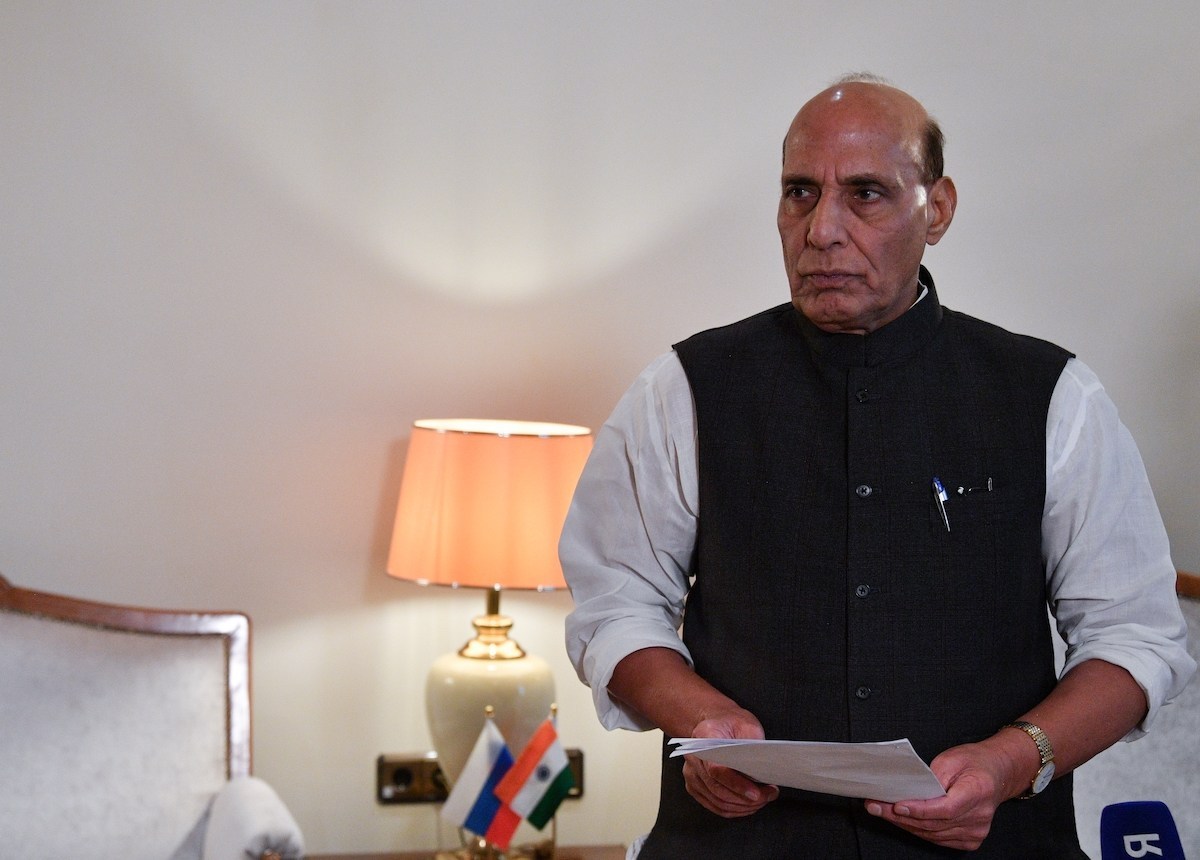[ad_1]
In his keynote address at the Indian Ocean Region Defense Ministers’ Conclave on Thursday, Indian Defense Minister Rajnath Singh outlined the need to maintain and preserve the rules-based order in the IOR at a time when other maritime areas are facing the negative impact of conflicting claims and assertive actions.
Accordingly, the minister highlighted India’s role as a net security provider in the IOR and its willingness to enhance defense partnerships with other countries in the region.Â
Throughout the years, India has consistently crafted regional frameworks to ensure economic, security, and cultural cooperation in the IOR. Key initiatives such as Project Mausam, Security and Growth for All in the Region (SAGAR) and the Asia-Africa Growth Corridor form crucial pillars in India’s regional policy.
India has also demonstrated efficiency and effectiveness in combating a wide variety of threats in the IOR including illegal immigration, human trafficking, illegal, unreported and unregulated (IUU) fishing, and piracy.
Singh said, “India has always been at the forefront of humanitarian assistance, non-combatant evacuation, and search-and-rescue operations in the maritime neighborhood. We are proud to have been the first responder in numerous instances of unfortunate natural disaster in the region.â€
Moreover, at a time when the Covid-19 pandemic has crippled and ravaged socio-economic growth, India has delivered millions of vaccines to countries in the region. Â
Singh further emphasized India’s intent to boost its defense manufacturing and exporting capabilities.
“We plan to move from a $11 billion defense base to $25 billion by 2025. Of this, we further intend to create an export component of $5 billion,†he said.
India has also demonstrated its readiness to supply several types of missile systems, light combat aircraft (LCA) and other weapons systems to countries in the IOR.
Accordingly, the defense minister said, “India is ready to supply various types of missile systems, LCA/helicopters, multi-purpose light transport aircraft, warship and patrol vessels, artillery gun systems, tanks, radars, military vehicles, electronic warfare systems and other weapons systems to IOR nations.â€Â
The Indian Ocean is a very important strategic avenue for international politics. Being home to critical sea lines of communication, the ocean has cemented its position at the forefront of global geopolitics.
The Indian Ocean contains significant maritime choke points such as the Strait of Hormuz, which links the ocean to the Persian Gulf, the Strait of Malacca, which is the main entry or exit point between the Indian and Pacific Oceans, and the Bab-el-Mandeb Strait, which links the Indian Ocean and the Mediterranean Sea.
It is noted that more than 80% of the world’s seaborne oil trade passes through the Indian Ocean choke points – 40% through the Strait of Hormuz, 35% through the Strait of Malacca and 8% through the Bab-el-Mandab Strait.Â
Given its economic and geopolitical relevance, the Indian Ocean serves as a platform for power projection among regional and extra-regional states. The maritime space has been a major cornerstone in India’s foreign policy. As a result, India has grown wary of China’s increasing strategic footprints in the IOR.
A paper published in 2017 by the think-tank Vivekananda International Foundation on China’s deepening presence in the IOR, said: “The Indian Ocean will loom large in Chinese strategic thinking well into the future, considering their current interests and their continuing ingress into newer regions. While Chinese strategic analysts may profess the absence of an enunciated strategy for the IOR, the signs are there for everybody to see.â€
The conclave represented India’s steadfast desire to maintain the status-quo order in the IOR. With the Indian Ocean gaining significant strategic relevance, it is inevitable for it to become an environment of power competition.
To preserve its position as net security provider, India must continue to engage constructively with its neighbors. Moreover, India must leverage its geographical advantage in the IOR to repel any attempt to alter the peace and stability of the region.Â
[ad_2]
Source link













